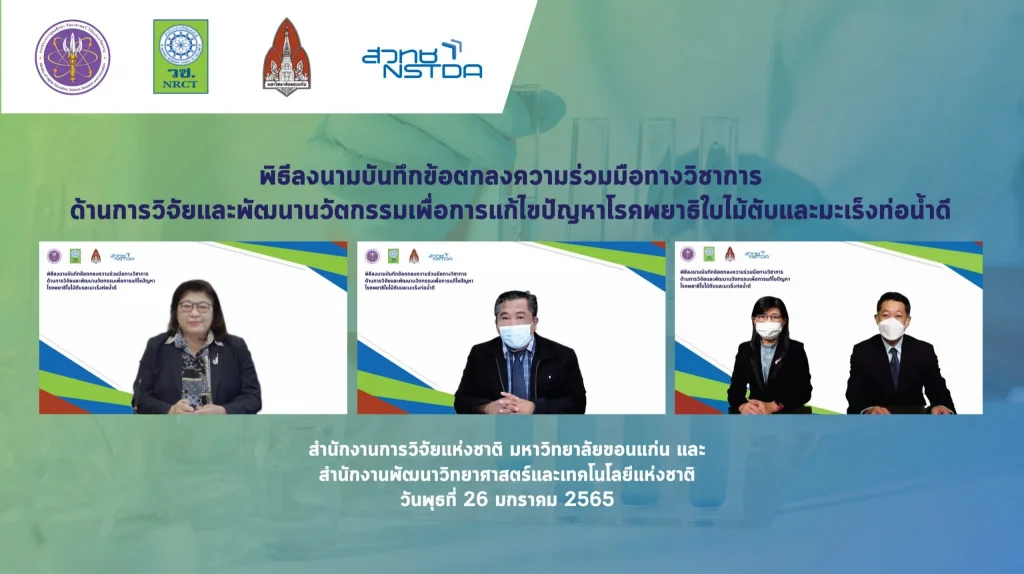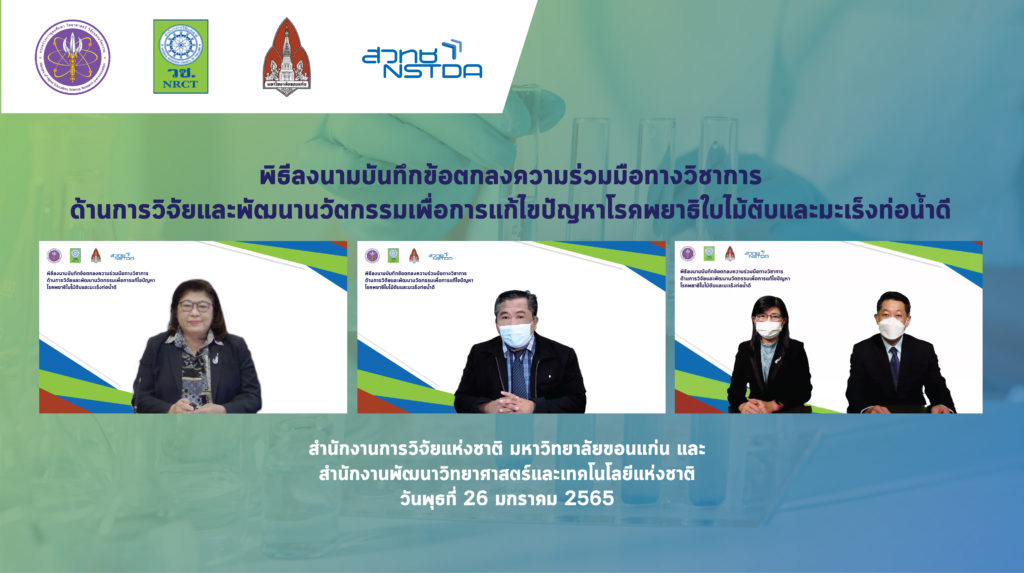
January 26, 2022 at 9:30 a.m. – Khon Kaen University by Prof. Monchai Duangchinda, Ph.D., Vice President for Research and Graduate Study; the National Research Council of Thailand (NRCT) by Dr. Wiparat Dee-ong, the Director; and the National Science and Technology Development Agency (NSTDA) by Dr. Narong Sirilertworakul, the Director, signed an MOU for research and development of innovations that will solve the problem of liver fluke disease and cholangiocarcinoma. The ceremony was carried online by Webex.
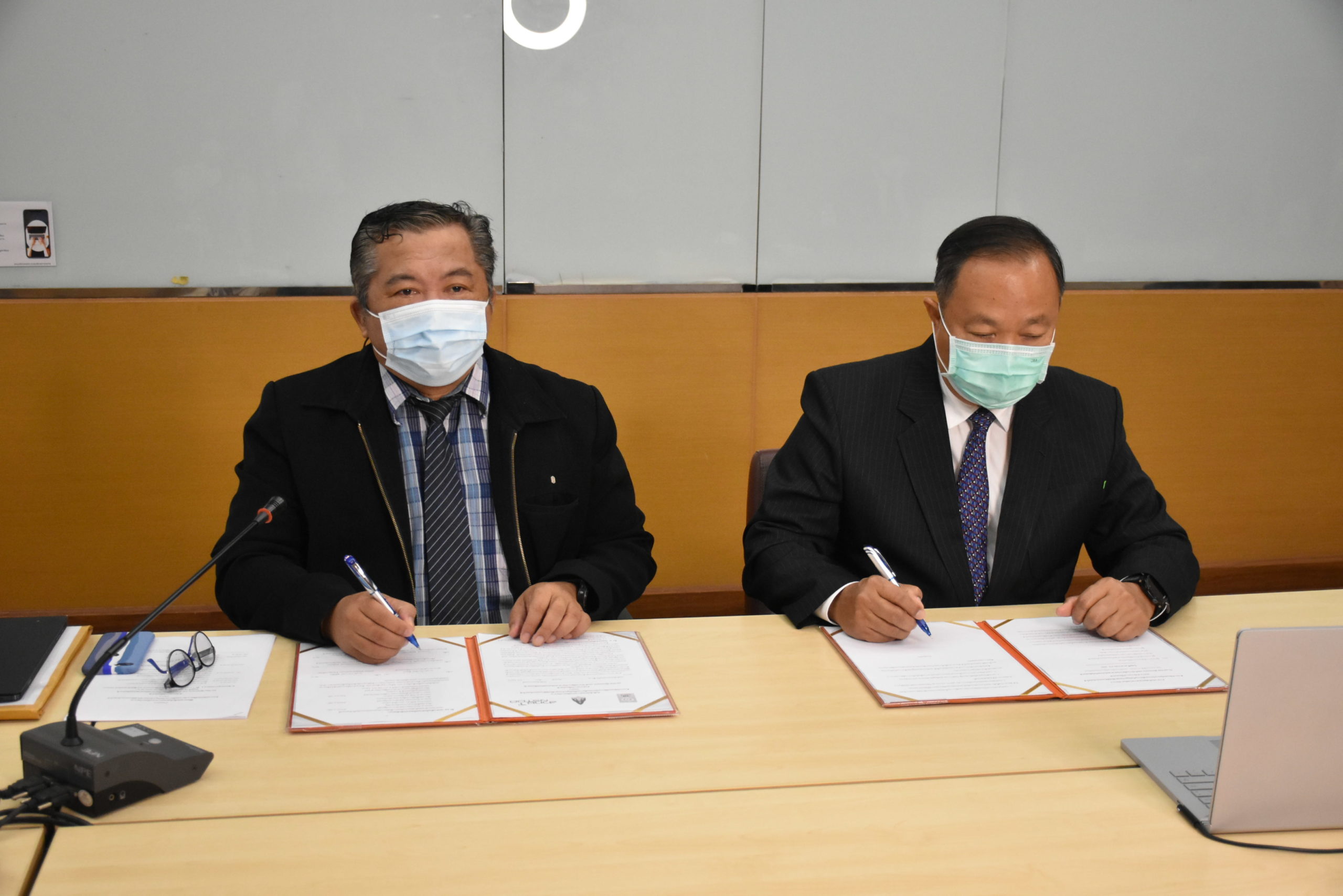
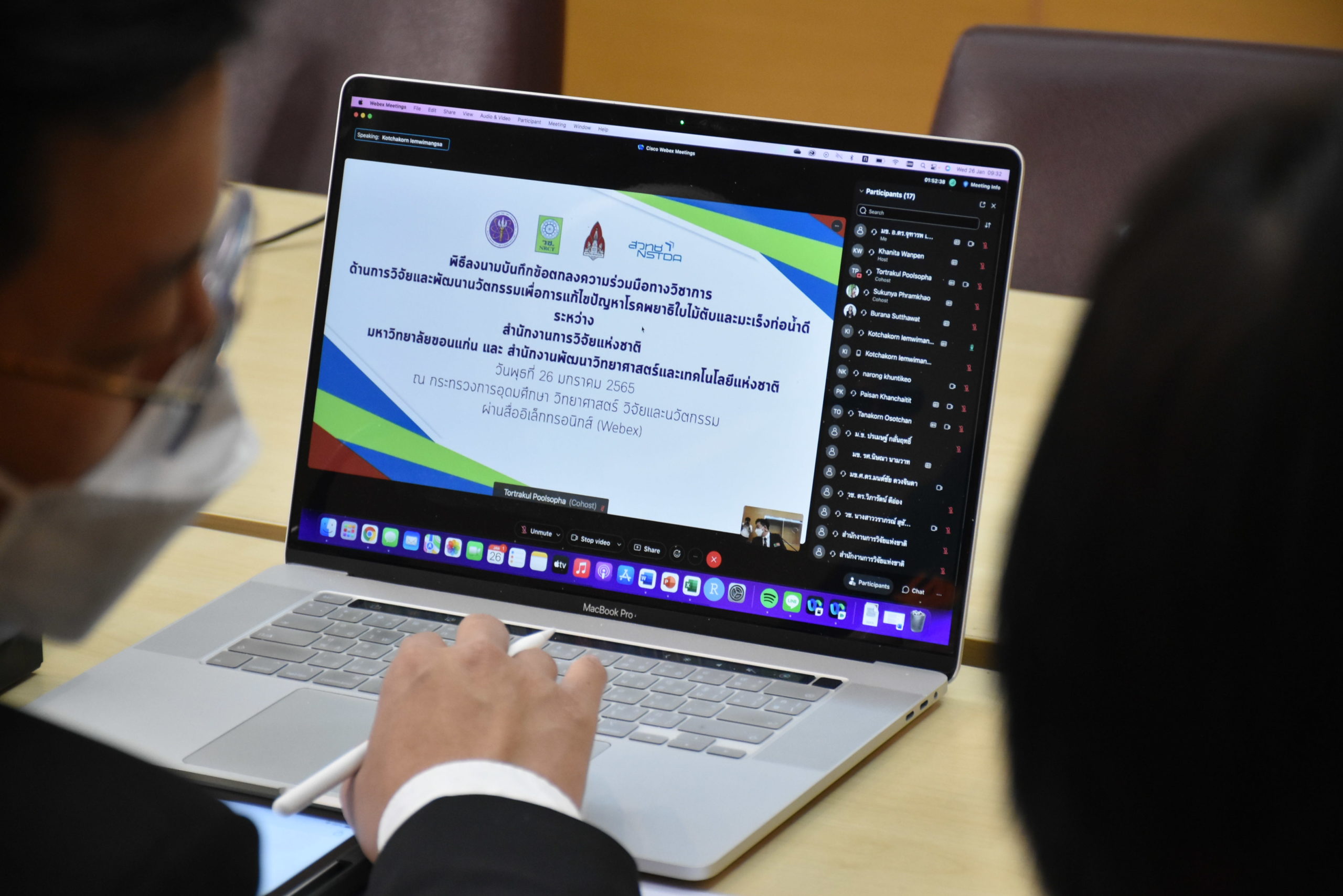

Dr. Wiparat Dee-ong, Director of the National Research Council of Thailand (NRCT) related about the role of the National Research Council of Thailand in supporting health and medical research for benefits of the areas in the region, “NRCT sees the importance in supporting research in health and medicine. There is budget support for innovations such as in the Thailand Challenging Research Project: Thailand free of liver fluke, which has been allocated to Khon Kaen University. This project is led by Prof. Narong Khanteekaew, M.D., who also acts as the project director. The project commenced in 2016 and continues until today. From the past operations, the Thailand Challenging Research Project: Thailand free of liver fluke has built key knowledge, technologies and innovations that are used in prototype districts until now the outcomes have expanded to cover all risk areas. Integration has been sought so that researchers from different organizations and communities join. This creates sustainable results. It is expected that the problem of liver fluke disease and cholangiocarcinoma will be reduced or totally gone from Thailand. NRCT is honored and pleased to be able to participate in supporting and developing the innovations to solve this problem with Khon Kaen University and NSTDA. It should bring a lot of benefits to the people in the area. NRCT will support Khon Kaen University and NSTDA in other research works that bring benefits to the nation and Thai people in the future.”
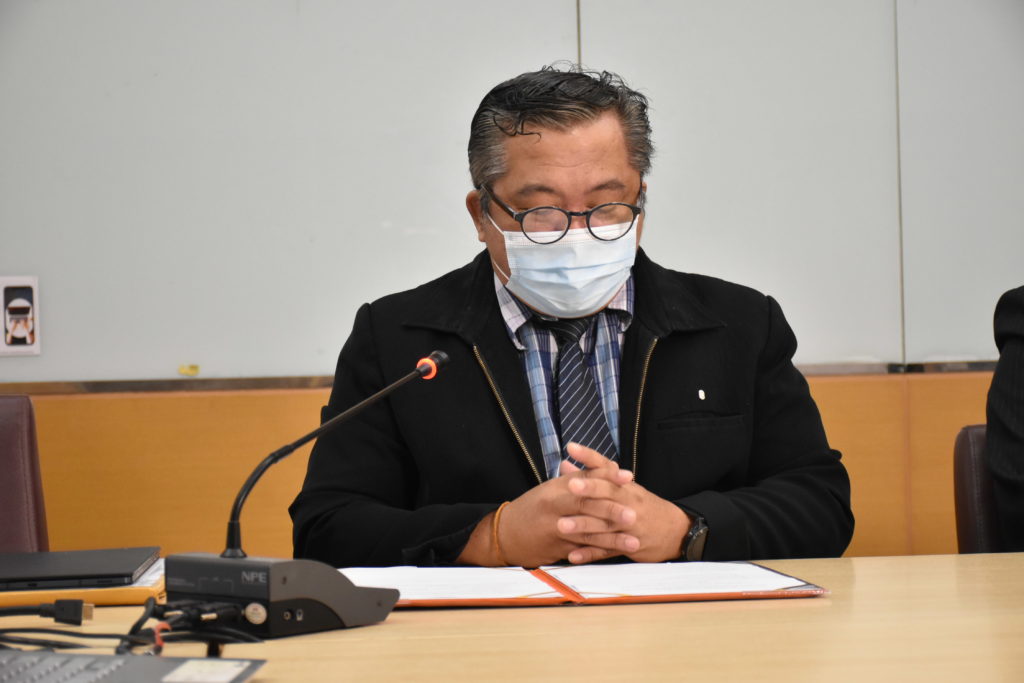
Prof. Monchai Duangchinda, Ph.D., Vice President for Research and Graduate Study, Khon Kaen University said, “All through the recent past, KKU by the Cholangiocarcinoma Research Institute has devoted itself in studying and solving the problem of liver fluke disease and cholangiocarcinoma. One attempt taken is to reduce the occurrence of cholangiocarcinoma, by joining with NSTDA under NRCT’s support. This time, we will conduct research and develop innovations to solve the problem which is frequently found in the Northeast. The results would help promote the quality of life of the people in the region. We are going to campaign for resources such as personnel, budget, materials and equipment for the work under this MOU. There will be exchanges of experiences and academic information among the personnel of the three organizations, which could be in the form of staff and student exchange. KKU hopes that the MOU will bring utmost benefits to the solution of the problem of liver fluke disease and cholangiocarcinoma that are found in great number in the Northeast.”
Dr. Narong Sirilertworakul, Director of the National Science and Technology Development Agency (NSTDA) added, “NSTDA is pleased to support and collaborate with universities, governmental organizations as well as the private sector to promote potentialities and expertise. The knowledge from research and development in this regard will help solve major problems of the country, especially in health. The problem of liver fluke disease increases risk of people to develop cholangiocarcinoma. Therefore, research and development of technologies under the Bio-Circular-Green Economy (BCG Model) of the health and medical industry is expected to build security in public health for the country, reducing dependence on imported technologies and products, and promoting self-dependence during the critical period.”
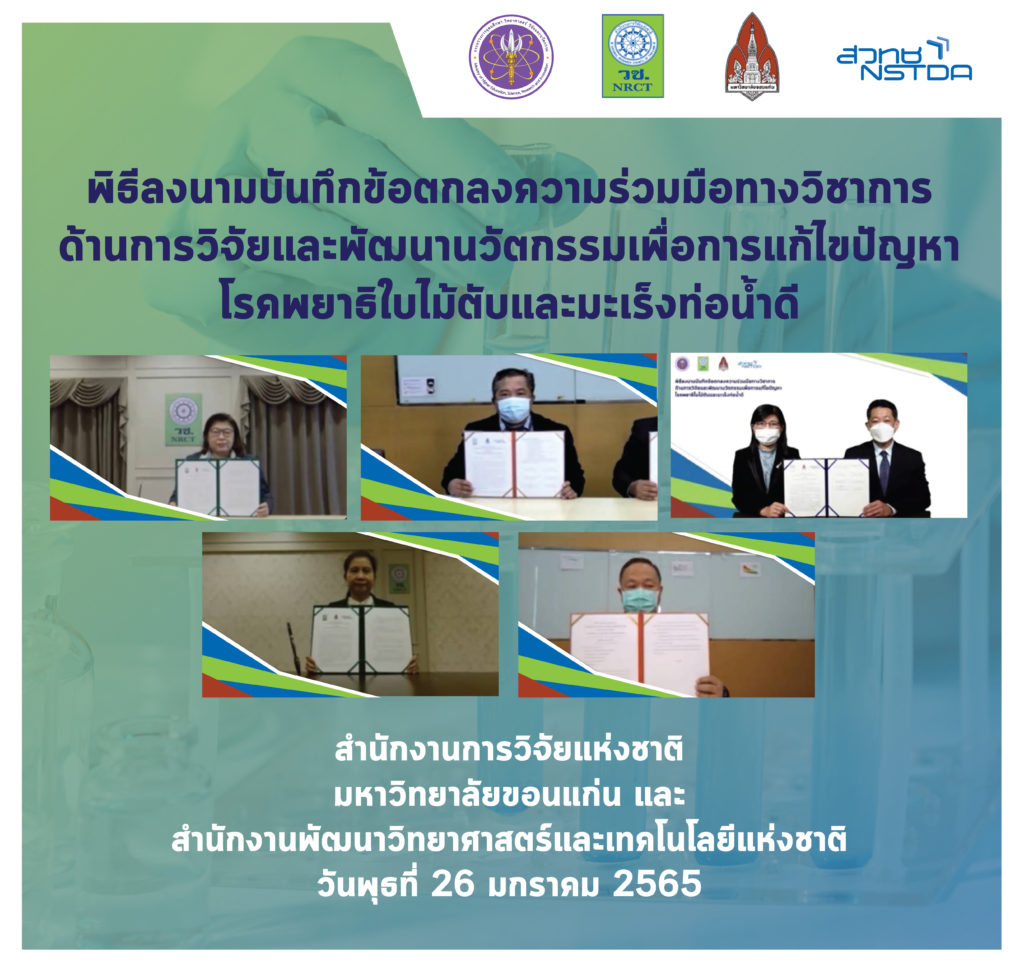
“The collaboration under this MOU will lead to a pilot project with the National Nanotech Center to develop the innovation for detecting metacercaria in fresh water fish and is the “Point of Care” type that can cut the life cycle of liver fluke, as well as an innovation of a sensor that can detect protein which indicates cholangiocarcinoma and hence will screen the first-stage patients and reduce the death rate in the risk group. The academic collaboration can be extended to the medical centers in other countries and the National Biotech Center.”
Dr. Narong added at the end, “NSTDA is ready to support the extension of collaboration in research and development that will increase the efficiency up to the point that innovations are created in health and medicine, which will lead to the solution of the diseases and raise the quality of life of the people. I hope that the MOU will be an important part in propelling the Government’s BCG economy.”
Photos: NSTDA / Panithan Sriboonruang
News: Sarayan Sakornbhut
ที่มา : https://www.kku.ac.th/12546

